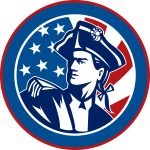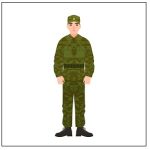
No Registration Required
Open to members only, except for the Open House
All Programs are In-Person, East Campus Forum Auditorium
12:15 pm – Cookies, tea and coffee
1:00 pm – Presentation
September 22 – League of Women Voters: Voting—Early and Ranked Choice
OPEN HOUSE All are invited. Bring your friends!
Did you know that Connecticut will have early voting beginning in 2024? Find out how this new way of voting will be implemented. Learn what’s in the newly passed John R. Lewis Voting Rights Act of Connecticut, designed to safeguard the right to vote and build a stronger, more inclusive democracy. Two officers of the League of Women Voters of Norwalk describe these developments, as well as the No-Excuse Absentee Voting question that will be on the November 2024 ballot. Finally, we take a look at ranked-choice voting and its pros and cons. Bring your own questions about voting, and learn what the nonpartisan League is doing to help make voting easier and more convenient as it fulfills its mission to empower voters and defend democracy.
Laura Smits is a former Registrar of Voters in Weston and an Elections Moderator in Norwalk. A former state League President and Vice President of Voter Services, she is currently a Member of the Norwalk League’s Steering Committee.
Elsa Peterson Obuchowski has spearheaded the Norwalk League’s voter registration outreach as well as its scholarship program. She has served on the state League board and is Deputy Treasurer of the Norwalk League’s Steering Committee.
September 29 – Genetically Modified Organisms
Genetically Modified Organisms (GMOs) have been part of the US commercial food supply since 1994, when the “Flavr Savr” tomato was introduced. Today the US has the largest area of genetically modified crops worldwide, with over 90% of all soy, corn, cotton, canola, squash, beets and more, all engineered to produce one or more novel proteins. And while many countries require GMO labeling, the US has successfully resisted labeling GMO products. Although some countries ban the import of GMO crops, the US embraces their production and import. The proteins introduced during engineering can make the crop plant resistant to insect pests, impervious to herbicides, drought tolerant, resistant to plant viruses and even make an attempt to taste better…but at what expense to human and environmental health?
food supply since 1994, when the “Flavr Savr” tomato was introduced. Today the US has the largest area of genetically modified crops worldwide, with over 90% of all soy, corn, cotton, canola, squash, beets and more, all engineered to produce one or more novel proteins. And while many countries require GMO labeling, the US has successfully resisted labeling GMO products. Although some countries ban the import of GMO crops, the US embraces their production and import. The proteins introduced during engineering can make the crop plant resistant to insect pests, impervious to herbicides, drought tolerant, resistant to plant viruses and even make an attempt to taste better…but at what expense to human and environmental health?
Erica Kipp-Sinanis is an environmental scientist and professor at CT State Community College, teaching biology, chemistry, ecology and environmental science for over 20 years. She began her career at The New York Botanical Garden, where she ran the plant research facility and collaborated with many companies in an effort to find novel plant compounds with medicinal value. She taught at Pace University and served as Director of the Biology Department. Dr. Kipp’s research on plant response to climate change has been published in scientific journals. She is chair of Norwalk’s Tree Advisory Committee.
October 6 – The Maritime Aquarium
The Maritime Aquarium has changed significantly in the last few years, with new exhibits, animals and programs. From the new 220,000-gallon Pinniped Cove seal habitat, to the state-of-the-art 4D theatre, the Sea and Discover early childhood zone, to touch tanks and feeding programs, the Aquarium has evolved into a place for all ages! During this interactive presentation, we take a tour of the Aquarium’s new offerings and experiences, including a peek behind the scenes of our newest exhibits, and offer you the opportunity to join our dynamic volunteer program as a Gallery Ambassador.
the last few years, with new exhibits, animals and programs. From the new 220,000-gallon Pinniped Cove seal habitat, to the state-of-the-art 4D theatre, the Sea and Discover early childhood zone, to touch tanks and feeding programs, the Aquarium has evolved into a place for all ages! During this interactive presentation, we take a tour of the Aquarium’s new offerings and experiences, including a peek behind the scenes of our newest exhibits, and offer you the opportunity to join our dynamic volunteer program as a Gallery Ambassador.
Ann Marie Lisi graduated with her BS in marine vertebrate biology, joined the Aquarium’s education department in 2007 and has been involved with programming for schools, scouts and the public. She served as the summer camp director for over ten years. Currently, Ann Marie oversees interpretive and volunteer operations, ensuring that volunteers are prepared and enthusiastic to engage with Aquarium guests at key exhibits.
October 13 – Norwalk Symphony: Beethoven’s 3rd Symphony, the “Eroica”
Beethoven’s Third Symphony is known as the “Eroica.” Learn how this powerful work changed the idea of what a symphony could be and, indeed, changed music history.
the “Eroica.” Learn how this powerful work changed the idea of what a symphony could be and, indeed, changed music history.
Jonathan Yates, widely respected as a conductor, pianist, and educator, is the Music Director of the Norwalk Symphony Orchestra and the Norwalk Youth Symphony.
October 20 – Tai Chi: Path to Improved Mental and Physical Health —Especially for Seniors
Tai Chi, an ancient Chinese martial art, has become popular worldwide as a form of exercise, meditation, and relaxation. Explore the benefits of Tai Chi for seniors. Research has shown that practicing Tai Chi can improve balance, flexibility and strength, as well as reduce stress, improve sleep quality and boost cognitive function. The instructor offers an introduction to the philosophy and principles behind Tai Chi and explains how to incorporate some Tai Chi practices into your daily routine.
of exercise, meditation, and relaxation. Explore the benefits of Tai Chi for seniors. Research has shown that practicing Tai Chi can improve balance, flexibility and strength, as well as reduce stress, improve sleep quality and boost cognitive function. The instructor offers an introduction to the philosophy and principles behind Tai Chi and explains how to incorporate some Tai Chi practices into your daily routine.
Shirley Chock, also known as The Stressbender, is a Tai Chi expert, a certified corporate wellness specialist and the owner of Aiping Tai Chi. As a disciple of Grandmaster Aiping Cheng since 2001, she became the 2006 U.S. Women’s Tai Chi National Champion holding many grand champion titles from national and international competitions. With a background in finance and leadership positions, including at Yale University, Shirley recognized the value of her Tai Chi expertise in managing workplace stress and conflict.
October 27 – History of US Submarine Program
Join us to explore the history of United States Navy submarines and the Submarine Program from 1900 into the Nuclear Age in 1970. And, of course, this history includes references to Connecticut – both New London, home of Electric Boat (which is now part of General Dynamics), and the Navy submarine base headquartered in Groton, directly across the Thames River from New London.
and the Submarine Program from 1900 into the Nuclear Age in 1970. And, of course, this history includes references to Connecticut – both New London, home of Electric Boat (which is now part of General Dynamics), and the Navy submarine base headquartered in Groton, directly across the Thames River from New London.
John Parker earned a BS in mechanical engineering at Case Institute of Technology, an MS in the same field from the University of Connecticut, an MBA from New York University and graduated from the Naval Reactors Nuclear Engineering School. He was employed by General Dynamics Electric Boat working on the design, construction and testing of advanced submarine power plants, and spent three years at the National Reactor Testing Station in Idaho Falls, Idaho. After leaving Electric Boat in 1969, he spent the remainder of his career in commercial engineering and financial management.
November 3 – Keeler Tavern and Museum: The Revolutionary War at Home
Throughout the American Revolution, Connecticut shore towns, as well as Danbury and Ridgefield, were targets of British raids. We explore the military strategy and tactics and—using Keeler Tavern Museum—tell the stories of how non-combatants navigated community division and endured those battles.
as Danbury and Ridgefield, were targets of British raids. We explore the military strategy and tactics and—using Keeler Tavern Museum—tell the stories of how non-combatants navigated community division and endured those battles.
John Bradley is the Interpreter and Group Tour Coordinator at Keeler Tavern Museum & History Center in Ridgefield. He has worked as a high school teacher and corporate training consultant.
Melissa Houston, Director of Education at Keeler Tavern Museum & History Center, has spent the past 15 years working in Connecticut museums with a focus on education, collections management and registration.
November 10 – The Reluctant Soldier
Join us to meet the author of The Reluctant Soldier, Mark Perlman, who weaves fact and fiction, to write this historical novel. A story of war, romance, murder, intrigue and the challenges of racism spans a century and gives us an unforgettable protagonist. Virgil Lincoln Carpenter (1891-1973), the son of a slave, is confronted by segregation, only to survive two world wars and his own personal tragedies on both sides of the Atlantic. As a young man, he saves the life of a white banker’s daughter. The banker finances Virgil’s college education, after which Virgil moves to New York City and becomes a professor. When many of his male students leave to join the army as America enters World War I, Virgil feels pressure to enlist and reluctantly joins the famous “Harlem Hellfighters” Regiment.
fiction, to write this historical novel. A story of war, romance, murder, intrigue and the challenges of racism spans a century and gives us an unforgettable protagonist. Virgil Lincoln Carpenter (1891-1973), the son of a slave, is confronted by segregation, only to survive two world wars and his own personal tragedies on both sides of the Atlantic. As a young man, he saves the life of a white banker’s daughter. The banker finances Virgil’s college education, after which Virgil moves to New York City and becomes a professor. When many of his male students leave to join the army as America enters World War I, Virgil feels pressure to enlist and reluctantly joins the famous “Harlem Hellfighters” Regiment.
Mark Perlman graduated with a BA and MBA from Northeastern University and is a Bronx native. He is a member of the World War I Historical Association in America and spent many years researching and writing this book.


